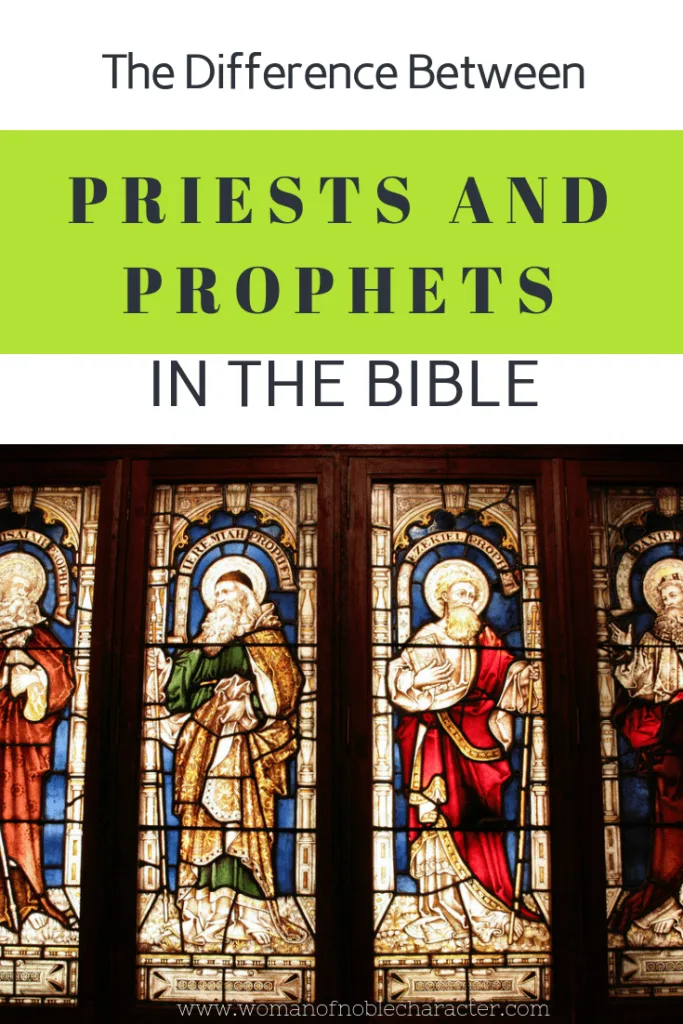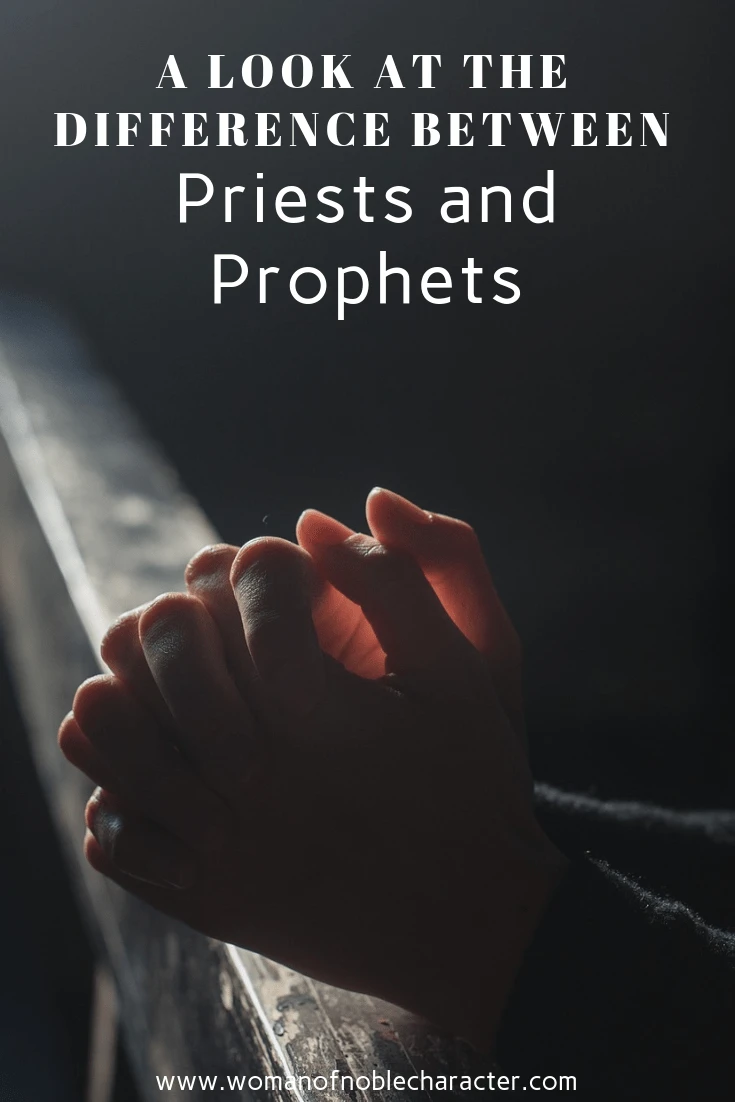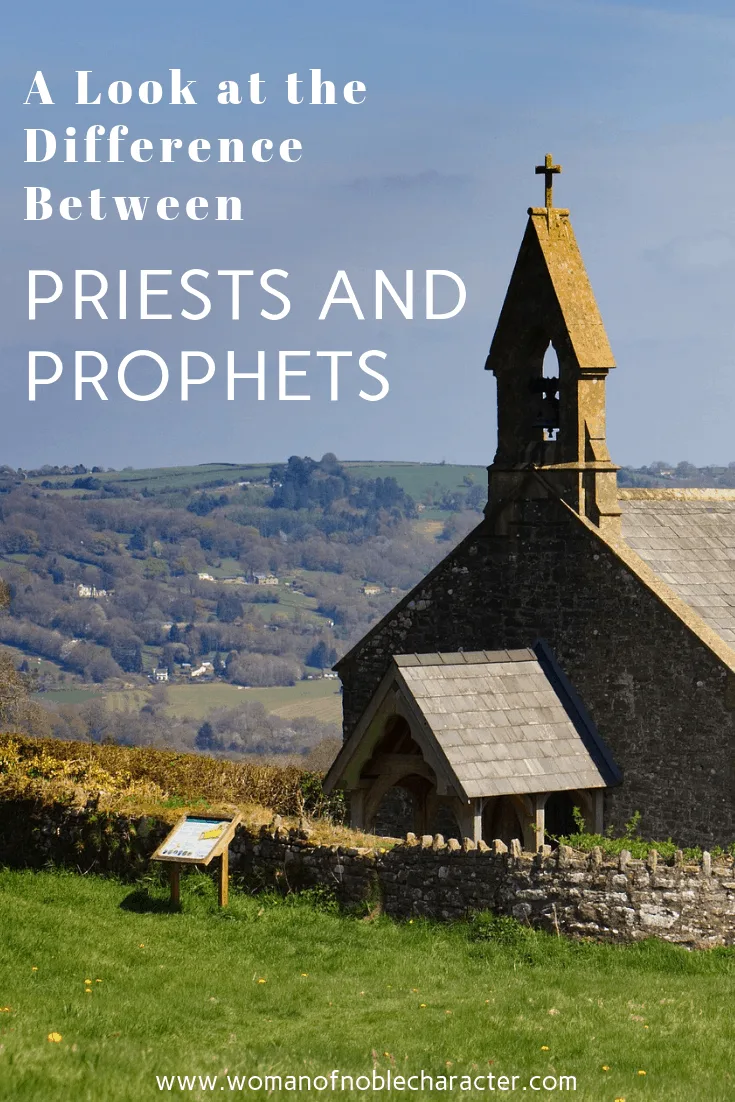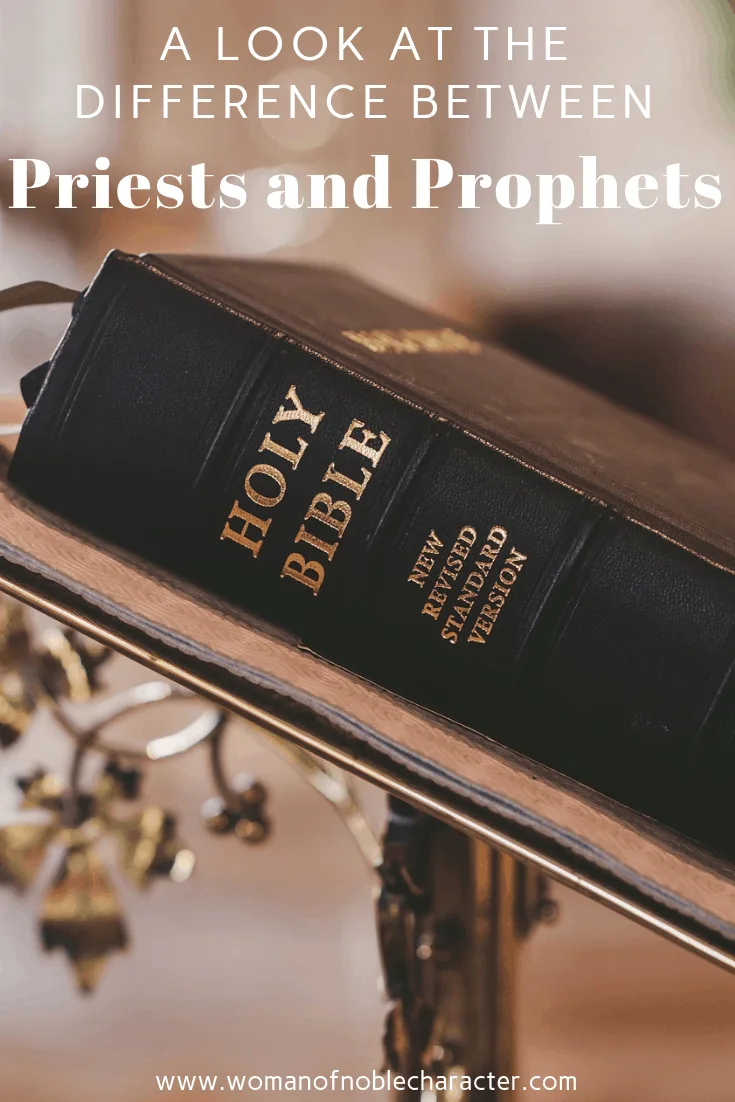This page/post may contain affiliate links. As an Amazon Associate, as well as an affiliate of other programs, this means if you purchase something using these links, I will receive a commission on qualifying purchases at no cost to you! For more detailed information, please visit our Affiliate Disclaimer page
Priests and Prophets
Throughout the Bible, we read of priests and prophets. The Bible doesn’t include a dictionary of what each term means (although there are many great study Bibles that include a dictionary of biblical terms).
It’s not difficult to confuse the roles of priests and prophets so let’s take a look at what the role of each is. We’ll also explore several Bible verses about each.
In simple terms, the difference between priests and prophets is this:
The priest’s primary job is to represent God’s people before God. The prophet’s primary call is to represent God before God’s people.
Both priests and prophets are appointed by God.
Priests
Every high priest is selected from among the people and is appointed to represent the people in matters related to God, to offer gifts and sacrifices for sins. – Hebrews 5:1
The role of a Priest is simply to represent people to God. In the Old Testament, a priest would literally turn his back to the people and mediate for them before God. Jesus is the High Priest who mediated between people and the Father by sacrificing His life. A priest mediates before God on behalf of people.
The priest’s responsibility is to present the people’s petitions before God, to speak their hopes and dreams, and seek God’s favor on those hopes and dreams. Those hopes and dreams are typically for ample rains (good fortune), a bountiful harvest (wealth), many children (again, a kind of wealth, but also to fill the world with God’s disciples), and victory against enemies (success in life, business, relationships).

The priest takes the people’s concerns and offers them to God as a sacrifice in petitions. The priest mediates between the people and God on the people’s behalf. And everything the priest does is focused on the people’s needs.
While we are all called to be priests (But you are a chosen people, a royal priesthood, a holy nation, God’s special possession, that you may declare the praises of him who called you out of darkness into his wonderful light. 1 Peter 2:9), some would argue that a husband’s role includes acting as the family priest.
A husband represents his wife and children to God. He spends time in prayer each day, remembering the needs and concerns of his wife and each of his children. He prays for the salvation of his children. Like Job, he asks the Lord to forgive the sins of his children. He sets the spiritual temperature in the home. He sacrifices his life for theirs. He is a mediator to God for his family.
Prophets
So Christ himself gave the apostles, the prophets, the evangelists, the pastors and teachers – Ephesians 4:11
While the priest represents the people before God and takes their petitions to Him, the prophet represents God to the people. In the Old Testament, a prophet would face the people and speak. Jesus was a prophet who spoke the Word of God to the people and was, in fact, the Word incarnate. A prophet speaks for God.
Apart from Moses, who the Bible calls the greatest prophet who ever lived, the Lord appointed a number of highly spiritual men, including Samuel, Elijah, Elisha, Isaiah, Jeremiah, and Ezekiel, who were called to speak for God, act on His behalf, and communicate His message courageously to the nation of Israel.
The words that prophets speak, the things prophets do, and the way prophets live are all difficult to grasp or understand for many people. Their behavior can be surprising or even, at times, considered offensive.
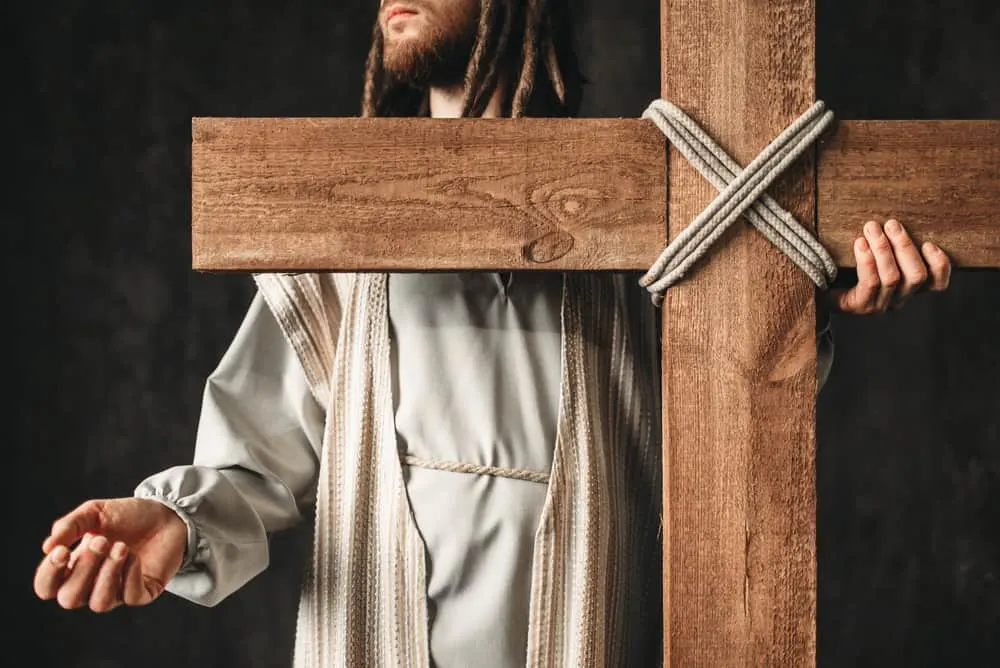
The main purpose of the prophet is to remind people that God’s will for them is frequently much bigger, and sometimes entirely different, from what the people want — good fortune, wealth, a lot of kin, and success in life.
The prophet speaks the word of God, the judgmental and the comforting words, in times of failure, misfortune, defeat, and death. The prophet tells us that strangers and enemies are beloved of God, too. The prophet speaks a word of redemption.
In the Bible, we learn that prophets were appointed by God as specially gifted men and differ from those believers who have the gift of prophecy (1 Cor. 12:10). Not all such believers could be called prophets. It seems that the office of the prophet was exclusively for work within a local congregation, whereas that of apostleship was a much broader ministry, not confined to any area, as implied in the word apostolos (“one who is sent on a mission”). Paul, for example, is referred to as a prophet when he ministered locally in the Antioch church (Acts 13:1), but elsewhere is always called an apostle.
to another miraculous powers, to another prophecy, to another distinguishing between spirits, to another speaking in different kinds of tongues,[a] and to still another the interpretation of tongues – 1 Corinthians 12:10
The prophets sometimes spoke revelation from God (Acts 11:21–28) and sometimes simply preached in-depth on revelation already given (as suggested in Acts 13:1, where they are mentioned in relation to teachers). They always spoke for God but did not always give a newly revealed message from God.
In the Christian family, the husband is to be a type of family prophet. He represents God to his wife and children. When his wife is upset, the husband would ideally calm her by sharing God’s wisdom. As a prophet, the husband proclaims the gospel of faith to his family.
He provides biblical instruction and training to his wife and children without becoming legalistic. He prepares family devotions and encourages private devotions. He is the guardian of family values. He leads the family as the spiritual head by bringing them to church, praying with and for them, modeling biblical values, and pointing his children and wife to God’s Holy Word. He is a messenger from God to his family.
One could argue that prophets don’t exist in the world today, as we already have the complete Word of God in the Holy Bible.
Prophets in our day then do not receive new revelation from God. They do, however, continue to proclaim the Word of God. Husbands prophesy to their wives when they wash them with the water of the Word (Ephesians 5:26). Parents prophesy to their children when they speak to their children of the things of God when they lie down and when they rise up and when they walk by the way (Deuteronomy 6:4-9). Churches prophesy to the world when they proclaim the faith once delivered (I Corinthians 11:4-5).
For more in-depth studies on the difference between priests and prophets, consider one of these recommended resources:
Prophet, Priest, and King: The Roles of Christ in the Bible and Our Roles Today by Richard P. Belcher
Prophets, Priests, and Kings: Old Testament Figures Who Symbolize Christ by Andrew C. Skinner
Did you miss our series on exploring the names of God? You can find all of the posts on this section of my website.
Or, for a fascinating look at what the Bible says about tears, see this post.
Thank you for stopping by.
Because of Him,
Sue
